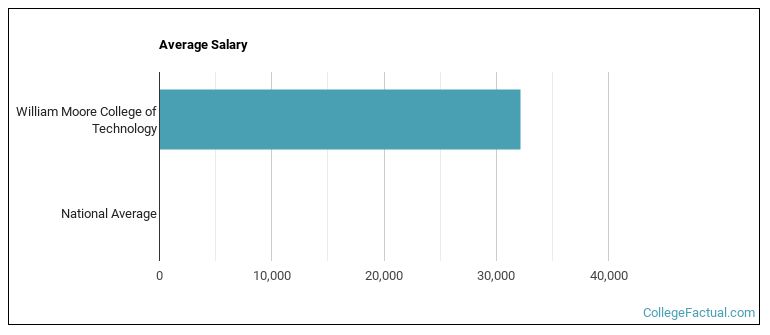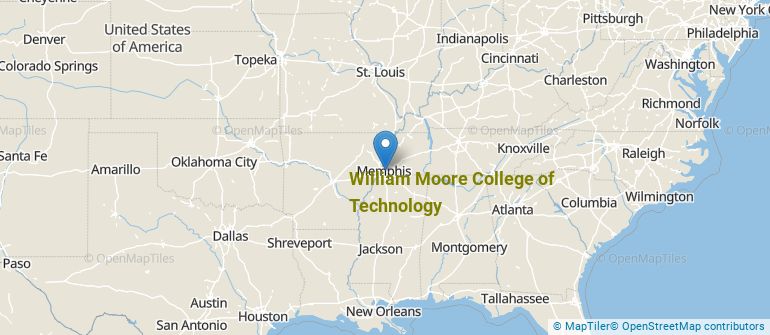 by our College Data Analytics Team
by our College Data Analytics TeamExplore the best ranked schools for the programs you are most interested in.
William Moore College of Technology was not ranked in College Factual's 2025 Best Overall Colleges report. This could be for a number of reasons, including lack of data.
See all of the rankings for William Moore College of Technology.
Since William Moore College of Technology has an open admissions policy, being accepted to the school isn't that hard. However, a full basic things - such as a high school diploma or equivalent - may be required. Also, go over your application to make sure it is complete before you submit it.
The student to faculty ratio at William Moore College of Technology is an impressive 11 to 1. That's quite good when you compare it to the national average of 15 to 1. This is a good sign that students at the school will have more opportunities for one-on-one interactions with their professors.
In addition to the student to faculty ratio, some people look at what percentage of faculty members are full-time as a sign of how much time professors will be able to spend with their students. This is because part-time teachers may not be be on campus as much as their full-time counterparts.
The full-time faculty percentage at William Moore College of Technology is 77%. This is higher than the national average of 47%.
The freshmen retention rate tells us what percentage of first-year, full-time students choose to continue on to their sophomore year at a particular school. The rate at William Moore College of Technology is 65%, which is about average when compared to the national rate of 68%.
During the 2017-2018 academic year, there were 378 undergraduates at William Moore College of Technology with 154 being full-time and 224 being part-time.
The net price is calculated by adding tuition, room, board and other costs and subtracting financial aid.Note that the net price is typically less than the published for a school. For more information on the sticker price of William Moore College of Technology, see our tuition and fees and room and board pages.

See which majors at William Moore College of Technology make the most money.
Get more details about the location of William Moore College of Technology.

Contact details for William Moore College of Technology are given below.
| Contact Details | |
|---|---|
| Address: | 1200 Poplar Ave, Memphis, TN 38104-7240 |
| Phone: | 901-726-1977 |
| Website: | www.mooretech.edu/ |
| Most Popular Majors | Bachelor’s Degrees | Average Salary of Graduates |
|---|---|---|
| Precision Metal Working | 62 | NA |
| Heating, Air Conditioning, Ventilation & Refrigeration | 36 | NA |
| Vehicle Maintenance & Repair | 14 | NA |
| Building Management & Inspection | 13 | NA |
| Electronics Maintenance & Repair | 10 | NA |
| Plumbing & Water Supply | 6 | NA |
This is a decrease from the 50 students who took online classes the previous year.
Learn more about online learning at William Moore College of Technology.
Footnotes
*The racial-ethnic minorities count is calculated by taking the total number of students and subtracting white students, international students, and students whose race/ethnicity was unknown. This number is then divided by the total number of students at the school to obtain the racial-ethnic minorities percentage.
References
More about our data sources and methodologies.